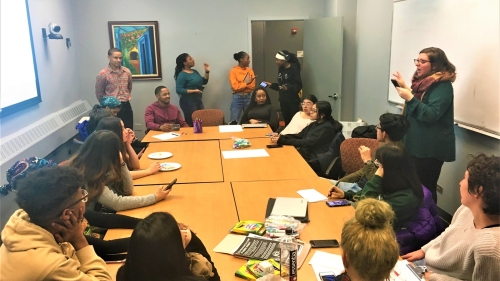
Integration and Innovation Initiative (i3)
One of our newest subunits, i3 repositions NYU Metro Center as a national leader in supporting the racial and socioeconomic integration of schools and communities across the United States.
i3 partners with districts, schools, and communities throughout the nation to design and develop innovative and equitable solutions to educational segregation through research and strategic support.
This year i3 served the following communities:
- 700 individuals served virtually
- 100 students served
- 100 parents/community members served
- 100 teachers served
- 10 district leaders served
- 10 school leaders served
- 20 trainings hosted
i3 is particularly proud of the work it continued to do given the overlapping crises that fomented during the ‘19-’20 year. i3’s principles of racial and educational justice allowed for a genuine responsiveness to the needs of their community partners. i3 served in various capacities including advising school and district leaders; providing rapid technical support to our community based partners; and advocating for equitable policy decision-making.
i3 is currently working on helping to launch New Yorkers for Racially Justice Public Schools (RJPS), a new citywide coalition focused on centering racial and educational justice in the 2021 mayoral election.
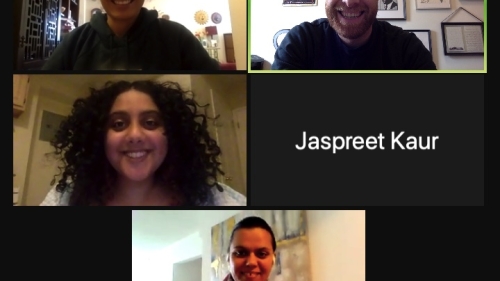
Innovations in Equity and Systemic Change (IESC)
NYU Metro Center’s IESC was founded in the summer of 2019. IESC provides professional development, technical assistance, and consultancy to educational institutions in general and special education. IESC’s mission is to advance educational equity by disrupting, dismantling, and eliminating disproportionality through expanding the capacity of educators to implement culturally responsive-sustaining (CR-S) equity-based systems that meet the needs of every student and family.
IESC offers anti-bias and culturally responsive training, equity-based technical assistance provisions, and CR-S assessments that align with the NYSED CR-SE framework, as well as emerging research on coherent systemic solutions for transforming failing schools and districts.
- 20 students served
- 193 parents/community members served
- 441 teachers served
- 65 district leaders served
- 51 school leaders served
- 104 trainings hosted
This year marked the first full year of operation for IESC and is among the youngest of the NYU Metro Center subunits. Despite the challenges of an inaugural year marked by a pandemic and national unrest over racial justice issues, IESC established itself with significant progress.
IESC partnered with NYU Metro Center’s own CSS and RBERN teams, as well as NYU Metro Center’s Deputy Director, Richard Gray, to launch Café Con Metro. This space was developed to respond to educators' needs during COVID while elevating CR-SE practices, building community among educators, and engaging in problem-solving and critical conversation on CR-SE, and anti-racism.
IESC also launched Black Educator Community Circle in order to bring together Black educators in NY State and nationally to share resources, provide socio-emotional support, and to network in the face of COVID-19.
In addition to these spaces, our unit developed a responsive interactive online training curriculum for CR-SE and root cause to support their partnering school districts.
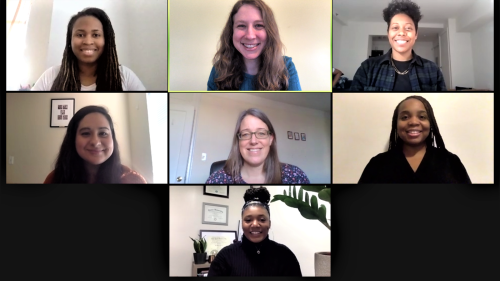
Center for Policy, Research, and Evaluation (PRE)
The mission of PRE at NYU Metro Center is to make research and evaluation for education that is action-oriented, liberating, accessible and results in more equitable systems, policies, and practices. Recognizing that research is often used as a tool of domination, we believe in the reclamation of research tools to illuminate marginalized truths, stories, and experiences.
- 1320 individuals served virtually
- 20 students served
- 600 parents/community leaders served
- 600 teachers served
- 50 district leaders served
- 50 school leaders served
- 13 trainings hosted
The PRE team’s research has continued to be on the cutting edge of ongoing issues, addressing topics ranging from youth and parent leadership and organizing, culturally responsive and sustaining education, and linguistic justice. We actively made our research accessible by translating it into practice through webinars, conference presentations, tool development, blog posts, social media, and brief videos.
Shortly after schools shut down nationwide due to the pandemic, the PRE team also led the development of tools for education to listen to and learn from families amidst school closures. Teachers nationwide used this document through the spring and into the fall, while we were invited to present the tool to several groups of educators. In addition to this resource, PRE partnered with EJ-ROC to analyze data from a Chalkbeat survey of 550 NYC students, in order to assess the student’s most immediate concerns and feelings. This survey and analysis proved useful for the Chalkbeat writer as well as our community facing articles on the subject.
With more than one pandemic this year, PRE also showed support for the spring of racial reckonings. Elise Harris Wilkerson led the #UpliftBlackScholarship social media campaign, highlighting the contributions of Black scholars throughout history. Hui-Ling Malone and Sara McAlister blogged about the critical role of youth organizers, while Danielle Perry, Joanna Geller, and Elise Harris Wilkerson presented to early childhood educators about the importance of addressing race and racism, even with young children.
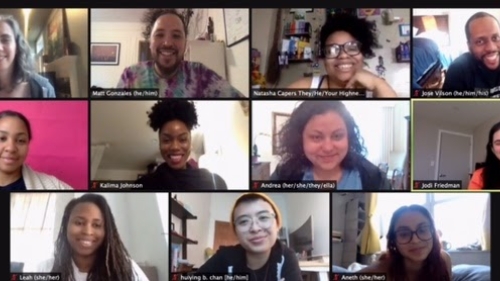
The Education Justice Research and Organizing Collaborative (EJ-ROC)
The Education Justice Research and Organizing Collaborative (EJ-ROC) provides support to public school parents, youth, and community groups that are organizing to improve their public schools. We bring together researchers, data and policy analysts, and community organizers to provide critical research, data, policy, and strategic support for the education justice movement. Our work aims to maximize the synergy between research and community organizing, magnify the voices of grassroots communities of color, and advance the capacity of organizing efforts to design solutions, make demands, and sustain policy wins.
We are particularly proud of our work convening the NYC Culturally Responsive Education Working Group, which created a definition of Culturally Responsive-Sustaining Education that was adopted by NYC’s Panel for Educational Policy. The adoption of this definition by the NYC Department of Education has been a key triumph in our efforts for the year.
This year, we served and worked with:
- 1000 people reached
- 500 parents
- 100 students
- 350 teachers
- 100 education leaders
- 50 engaged community-based organizations
- 25 training workshops, seminars, and courses hosted
EJ-ROC plays a central role in multiple coalitions and multi-stakeholder collaborations: we convened and led the NYC Culturally Responsive Education Working Group; supported the Coalition for Community School Excellence, and provided regular support to the NYC Coalition for Educational Justice and the Alliance to Reclaim Our Schools.
EJ-ROC continues to embrace growth and adapt to change. We quickly moved to remote meetings and events in 2020; revamped our training offerings to incorporate current issues of remote learning; changed the format of our events and meetings to incorporate breathing, stretching, and healing practices, as well as sharing on social-emotional wellness during the pandemic.
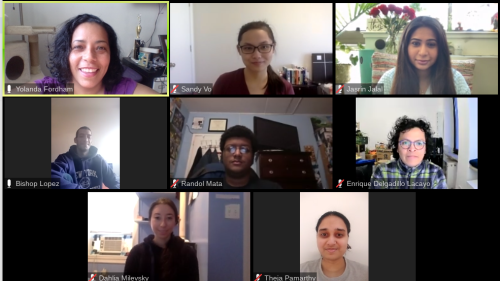
Liberty Partnerships Program (LPP)
NYU LPP is one of 46 statewide LPPs funded by the New York State Education Department. They position NYU staff, graduate and undergraduate students, and program partners to provide direct services to students in the areas of academic immersion, academic support services, counseling, college readiness, cultural enrichment, employment preparation, community service projects, leadership development, civic duty activities, mentoring, health and wellness, and tutoring.
NYU LPP, having completed the third year of a 5-year contract (2017-2022), has continued to serve vulnerable youth who attend our partner schools in New York City.
This year, NYU LPP served and worked with:
- 778 people reached
- 265 students
- 256 parents
- 10 teachers
- 10 education leaders
- 9 engaged allied groups
- 20 training workshops, seminars, and courses hosted
The biggest success of the Liberty Partnerships Program is the LPP Summer 2020 Program, which offered 12 component options. During the 7-week Summer 2020 Program, the cohort of participating students maintained consistent attendance and participated in 2-3 components. NYU students who work as LPP Tutors/Mentors planned and implemented program components across a variety of topics to include: Computer Programming; SAT Preparation; Social Media and Personal Branding.
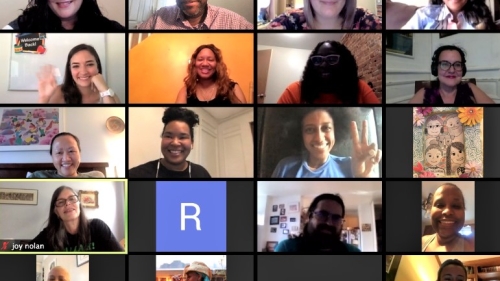
Center for Strategic Solutions (CSS)
The Center for Strategic Solutions (CSS) has developed national expertise in supporting educators, and individuals who have contact and influence in education. CSS supports its partners in considering the impact of race, power, and privilege on the lives of students and their learning trajectories. By offering professional development, technical assistance, consultation, and coaching that delves into the deep historical entanglements of racial inequity, CSS centers the dialogue in developing a shared understanding of the systems that impact our cross-racial, cross-ethnic, and cross-cultural understandings. Engagements are designed to offer multiple points of entry for participants of all backgrounds.
- 1064 individuals reached virtually
- 272 students served
- 129 parents/community members served
- 1342 teachers served
- 312 district leaders served
- 538 school leaders served
- 235 trainings hosted
During the 2019-2020 school year, CSS continued to grow in service and community. We are proud of the success CSS had as they transitioned to virtual services which allowed for continuity with partners.
CSS was responsive to partners' needs including being flexible with agendas, increasing the number of check-ins, providing training in smaller doses, offering more coaching and consultations, and centering social-emotional learning practices through a racial justice lens.
CSS provided spaces for educators to come together and share during our virtual #DecolonizingEd Town Hall. CSS also hosted the #DeColonizingEd Learning Series to provide community and resources for people navigating the complexities of reopening physical spaces that serve to center the humanity of students of the global majority (BIPOC).
Feedback from the event was overwhelmingly positive, with one attendee saying, “Your workshops always fill me with gratitude and hope, and plenty of homework (in
the best way)! Thank you for making safe spaces and for grounding us while we get to
spend time together.”
Additionally, CSS managed to significantly grow our number of partnerships going into the 2020-2021 school year. CSS looks forward, in hope, to continue to foster these partnerships well into the future.
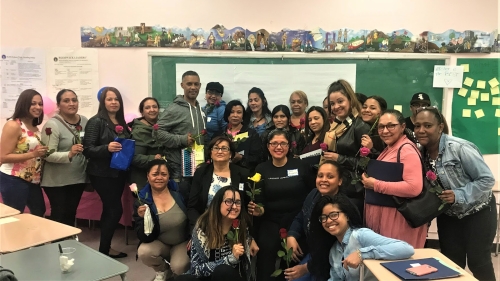
Regional Bilingual Education Resource Network (RBE-RN)
The New York State-Wide Regional Bilingual Education Resource Network (RBE-RN) at NYU Metro Center provides support for the education of English Language Learners/Multilingual Language Learners (ELLs/MLLs) and students of Languages Other Than English (LOTE) through technical assistance, professional development, resource material development, and translated subject area glossaries.
- 1,533 individuals served virtually
- 85 students served
- 4,324 parents/community members served
- 4,422 teachers served
- 199 district leaders served
- 282 school leaders served
- 65 professional development sessions served
- 415 Continuing Teacher and Leader Education (CTLE) Certificates granted
- 189,223 allied groups engaged (this includes glossaries that were accessed by educators statewide, nationally and internationally)
This year RBE-RN has worked on professional development initiatives for district and school administrators, teachers of ELLs/MLLs (ie. English as a New Language, bilingual, home language arts, world languages, special education, mainstream), school counselors, teachers and students on instructional strategies for ELLs/MLLs. ELL/MLL and World Languages classrooms were visited on-site and recommendations to improve instructions were made. The RBE-RN also conducted multi-language parent workshops at the 42nd Annual NYSABE conference on social emotional competencies and how parents can address their child’s social-emotional needs at home.
The NYS Language RBERN’s major event of the year was the New York State ELL/MLL Parent Conference. Over 500 attendees participated in workshop sessions and panel discussions that highlighted parental rights and how parents can advocate for their children, as well as essential resources and strategies that stakeholders can use to support parents of K-12 ELLs/MLLs in the communities and schools they service.
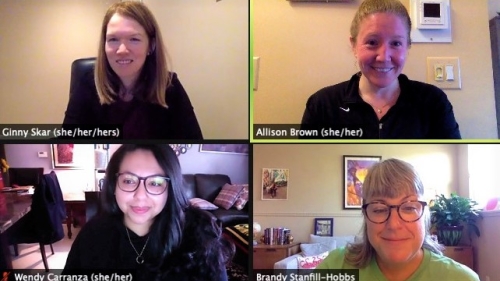
ASD Nest Support Project (ASD Nest)
The ASD Nest Support Project at NYU Metro Center develops the capacity of educational systems, districts, and schools to support students with autism spectrum disorder (ASD). By focusing on strengths, developing independence and advocacy, and committing to inclusion, ASD Nest helps partners build truly inclusive learning environments.
- 200 individuals reached virtually
- 2000 students served
- 350 parents/community members served
- 1200 teachers served
- 15 district leaders served
- 75 school leaders served
- 80 trainings hosted
ASD Nest was fortunate to host their annual NestCon in February, the last in person event they had for the year. Less than a month later, the ASD Nest team turned on a dime and jumped into immediate action in the spring—amidst incredibly challenging circumstances—to adapt their training, professional development, and school consultation to provide responsive and relevant and compassionate support of the thousands of students and families and school teachers, therapists, and principals of the 54 ASD Nest program schools across the NYCDOE.
All of the ASD Nest team's work shifted to support public school staff, as well as families of students, with adapting to remote learning. The team also began the process of explicitly and meaningfully focusing on anti-racism, both in the work the team does and in its internal structures and culture.
Though not an SEL program, a social-emotional lens influences the vast majority of the ASD Nest team's training and support to teachers and families, and this was a more deliberate focus this year. In the spring, more emphasis was placed on a trauma-informed care response, validation, reassurance, and consultative support responsive to the well-being of the practitioners the team works with.
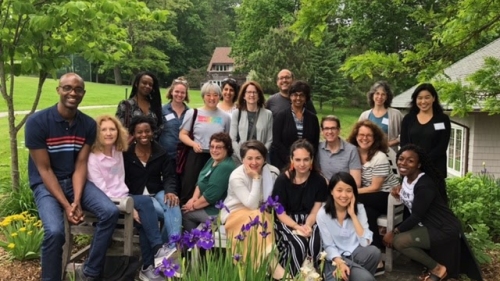
Project for the Advancement of Our Common Humanity (PACH)
PACH is a think-and-do tank that draws from the science of human connection in order to create a more just and humane world. Their theory of change is that transforming the way we see each other will transform the way we treat each other. PACH’s work involves research, curriculum development, community interventions, and training that add insight to, educate about, and tackle our most pressing societal problems. PACH’s Listening Project addresses society’s crisis of connection by training students and teachers in transformative interviewing, a method of interviewing that allows participants to see themselves and others outside of a set of stereotypes and, according to our evaluation research in middle schools and universities, fosters connection, belongingness, curiosity, listening skills, and a sense of a common humanity.
The challenge of COVID-19 and social isolation has reenergized interest and attention to the crisis of connection and the need for fostering more caring and connected communities. As such, PACH has seen enormous interest in organizations and institutions seeking partnership including from 1) NYC Department of Education middle schools to conduct the Listening Project as integrated into their English/Humanities classes. They have also partnered with English teachers to further develop the Listening Project curriculum for an in-person and on-line experience; 2) the NYC Department of Youth and Community Development to train program leaders to implement the Listening Project for their highschool after school programs, and 3) the Boy's Club of NY who will be partnering with PACH to train their staff in the methods of the Listening Project. In addition, this year PACH launched the Listening Project workshops for NYU faculty, administrators, and graduate students to foster greater connection and common humanity at NYU. These workshops have seen overwhelming interest with over 500 NYU community members on a growing waitlist. It has been a year of great growth and reach for PACH.
- 700 individuals reached
- 400 students served
- 75 parents/community members served
- 20 teachers served
- 14 school leaders (Principals/Assistant Principals) served
- 10 Middle School Teacher training
- 6 University trainings offered
PACH is also a part of the Einhorn Collaborative, a network of organizations dedicated to addressing the crisis of connection and building bridges across differences. The "Builders" are a powerful group of social justice leaders, educators, and activists who have founded organizations dedicated to addressing the crisis of connection.
College Prep Academy/1199 Workforce (CPA)
CPA is a supplemental college-preparatory program that enables roughly 300 high school students from high-need communities to attend our central NYU campus for intensive Saturday and summer sessions, focused on academic enrichment, tutoring, mentoring, college readiness, career planning, and professional internship experience.
The impact of the program's Saturday and summer programming on students' academic performance has been both impressive and transformative. Despite the COVID-19 Pandemic and abrupt transition to virtual learning platforms CPA seniors persisted in their goals:
- 100% of seniors successfully graduated high school and matriculated to college with many earning Advanced Diplomas.
- 96% of Academy seniors were accepted and matriculated in 4year institutions (Public: 63% / Private: 37%), the remaining 4 % were enrolled in 2-year Public community colleges.
- CPA/1199 WF Graduates enrolled in private institutions all obtained scholarship assistance including from: NYU, NYIT, Spelman, Tufts, D’Youville College, College of St. Rose, College of Mt. St. Vincent, Hofstra, Molloy, LIU, Stevens Institute of Technology, Curry College, West Virginia University, Berkeley College, Alabama A&M, and Washington University of St. Louis.
- Providing a virtual celebration for the end of the school term and a Graduation celebration for College Prep Academy seniors where students created and performed original music compositions and lyrics, poetry, and artwork to commemorate their achievements and share with family and peers was a major success and fun!
CPA spring and summer components provided flexible, creative, student centered, high touch services that offered opportunities for joy and fun, healing, self-care, restorative justice practices and culturally relevant, trauma-informed educational practices.
Engagement and connections with students and families were fostered through bi-weekly check with staff via phone and email along with daily Creative Arts/Mindfulness Welcome sessions for all. Using music, art, poetry, improvisation, mindfulness, interactive videos, social media tools, movement and exercise to prompt discussion and provide opportunities for students and families to share what was happening in their lives and in their communities. Promoting difficult conversations in safe spaces about racial and social injustice, the struggles to cope with the uncertainty, disruption, loss and traumas they were experiencing and supporting their future through gap bridging focused on equity, exploring new paths or redefining them and promoting student agency.
A grant from the Winston Foundation permitted CPA to expand program hours beyond the standard 9:00 am to 1:00 pm hours. Offering flexible afternoon/early evening, as well as on the weekends during the summer through August for over 110 participants extended learning opportunities for all of our students.
Instructional services focused on a strong Core Curriculum in Math and Science, ELA as well as Creative writing, Forensic Science, Performance Arts, Social Justice along with career exposure courses in Biomedical science, Anatomy and Physiology and Computer Tech (gaming and coding). Bi-weekly Career Conversations were held with professionals, program alumni and college professionals in each of these courses fostered networking and spurred an understanding of the opportunities and pathways to careers in their future.
Excel@NYU
EXCEL (Educational eXcellence Creating Empowered Leaders) in Writing, Thinking, and Inquiry (EXCEL@NYU) program, in partnership with Fannie Lou Hamer Freedom high school and Children’s Aid Society, was developed over the last 10 years to address the wide and specific needs of first-generation college-bound students of color in the South Bronx and provide access to the wealth of resources available at New York University. Excel Scholars develop skills in writing, reading, public speaking and community building through intensive critical literacy and college preparation curriculum and multimodal enrichment opportunities; such as academic conferences, cultural trips, faculty discussion sessions and college mentoring. By challenging students to become dynamic leaders in their academic community and beyond, The EXCEL Academy aids the transition from high school to college holistically.
- 100 people reached
- 34 students served
- 34 parents served
- 6 teachers served
- 3 education leaders served
- 40 allied groups and partnered impacted
- 4 training sessions hosted
EXCEL youth have presented annually at a research showcase sponsored by NYU Steinhardt Graduate Student Organization, the Office of Research, and the Office of Student Affairs, New York University since 2017. This year, Hui-Ling Malone presented her research findings alongside EXCEL scholars and won the Doctoral Distinguished Research Poster. The presentation focused on the impact of community partnerships at Fannie Lou Hamer.
The EXCEL model was featured at the June 2019 Youth Summit, hosted by the Youth Technical Assistance Center on Addressing Disproportionality and Youth Restorative Justice. Program staff led workshops with current and former EXCEL students on topics such as bridging the achievement gap with college access work and utilizing restorative justice to facilitate stronger relationships, reduce bias, and encourage diversity and understanding.
Furthermore, youth present their research and scholarly work to NYU faculty and staff every summer at the Radical Futures Showcase. Each year, faculty members comment on how they are inspired by the program and the youth perspectives.
As a result of the COVID-19 pandemic, EXCEL @ NYU worked in collaboration with Children’s aid to focus on trauma-informed practice to implement a mental health and hygiene component that focuses on self care and allows participants to develop stress coping skills and use creative expression to reinforce personal values. The Children's Aid social worker uses group work and regular one-on-one check-ins to connect with participants. The effects of the COVID-19 pandemic on students and their families have made this a critical component of the program and a means to maintain young people's participation.
Metro Learning Communities (MLC)
MLC is a specialized professional development project and is widely known for seminars in facilitative leadership, supporting students impacted by trauma, stress and loss, but it also offers professional learning opportunities in other formats. The project’s core mission is to promote educational excellence and equity for all students through deep and collaborative teacher learning.
- 25 parents/community members served
- 26 teachers served
- 2 district leaders served
- 3 school leaders served
- 7 trainings hosted
This year MLC made a successful transition from in-person to remote opportunities for all and developed online learning strategies for quality teaching and learning for our communities. MLC incorporated current challenges educators, students and families are facing, including “the pause”–COVID pandemic, racial injustice and social unrest. They shifted focus in all their work to best practices for teaching and “Supporting Students Impacted by Individual and Community Trauma,” which was put into motion through coaching sessions and impact seminars held throughout the year. MLC made sure to continue offering in-depth professional development and coaching for all educators including paraprofessionals. Because of the increased demand for support in dealing with COVID and all of its implications as well as racial injustice and social unrest MLC offered and will continue to offer these seminars during the 2020-2021 year.
Mindful Education Lab (MEL)
MEL conducts research, teacher training, and service to schools and individual students. MEL research looks at the psychological and neurological effects of mindfulness on student learning, teacher effectiveness, and school and classroom climate. This work, in turn, informs training of teachers and educators.
- 400 individuals reached virtually
- 620 students served
- 250 parents/community members served
- 40 teachers served
- 17 school leaders served
- 11 trainings hosted
- 15 affiliate groups
This year, MEL continued to provide critical destressing and meditative services in the numerous spaces that were particularly impacted by the overlapping pressures of the year. MEL events consisted of mostly service-based teachings to schools, hospital staff, and college students during the lockdown.
MEL is particularly proud of the work they conducted with stress relief and management for overwhelmed health care workers, high school and college students. In providing meditation training for whole teams of health care staff, the MEL team also benefited from participating in the much needed stress relief.
They also initiated a program of intervention designed to help international students, especially those from China, who were dealing with heightened stress due to the rise of Anti-Asian sentiment during the COVID-19 pandemic.
MEL experienced several successes this year at NYU and other colleges. This success has propelled MEL into plans to work with universities outside of the United States of America in the near future.
Urban Education Research Collaborative (UERC)
UERC provides a rich and textured forum for organic intellectual production focused on public scholarship and the ongoing development of emerging intellectuals. UERC is grounded in the ethic of participatory/community intellectual work, curating research and public scholarship, engaging hot topics, and preparing members to be agents of change in education and beyond. UERC allows students, educators, and affiliates to connect and contribute meaningfully to the mission and vision of NYU Metro Center.
The Voices in Urban Education (VUE) journal is the paragon of UERC. Now in its second year of publication at NYU Metro Center, VUE continues to stimulate conversation about critical educational equity issues in a way that honors VUE's mission of looking at a topic from multiple perspectives. These issues have honored the legacy of VUE as it was before it arrived under our care at NYU Metro Center and established a bold, ambitious, forward-thinking tone of inclusion and solidarity that we hope will continue to appeal to our growing readership.
Annual Report | 2019-2020
Want to see more of Metro Center's 2019-2020 Annual Report?
Table of Contents
